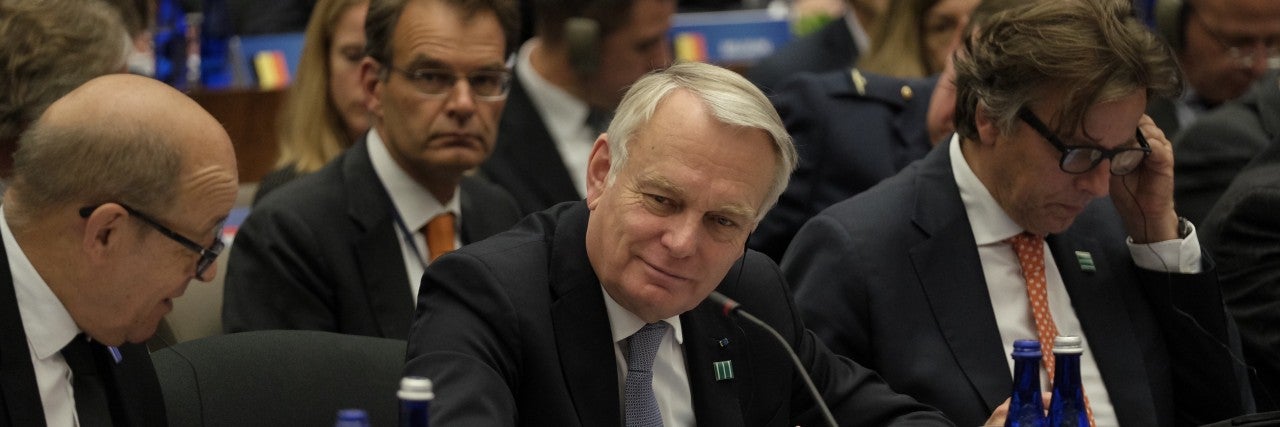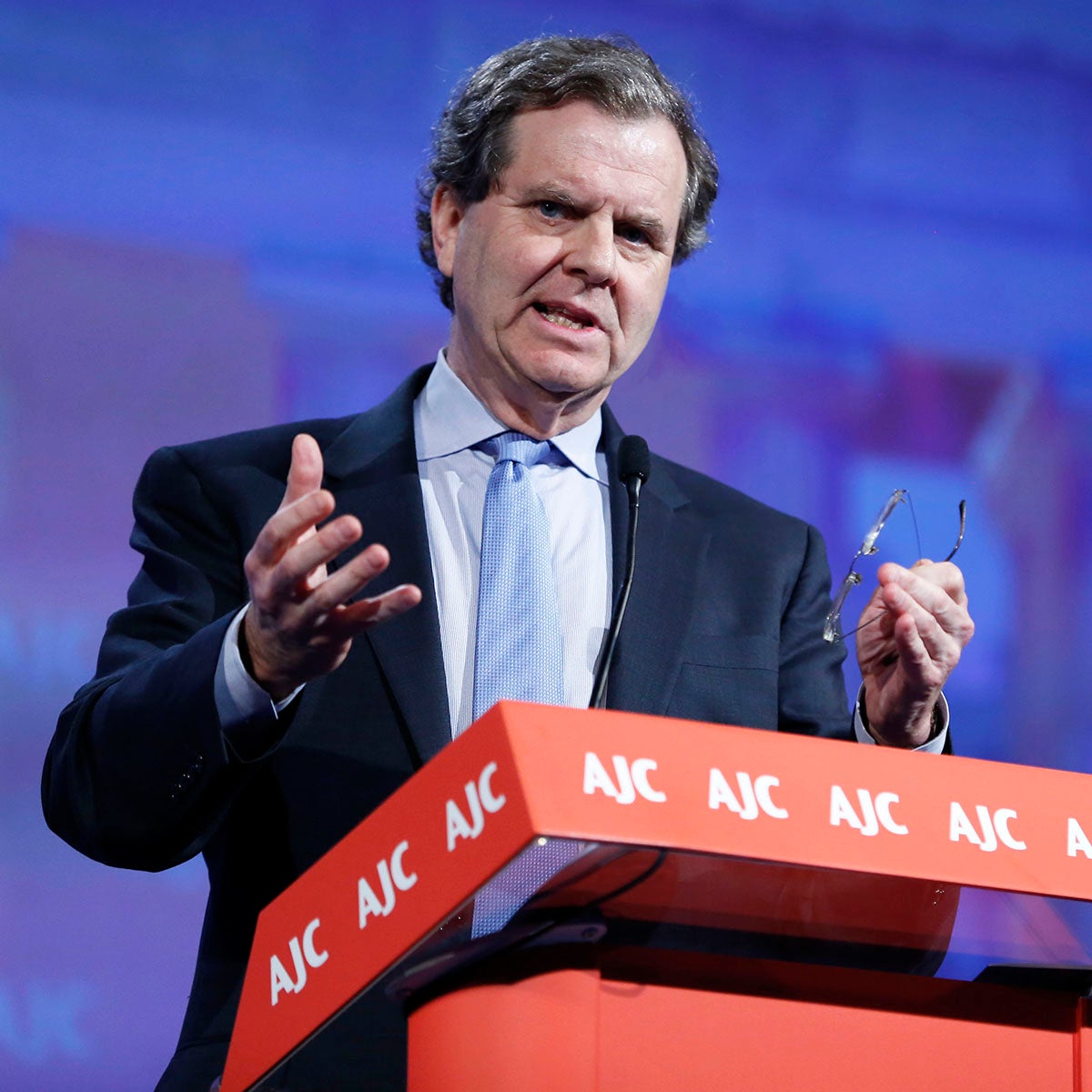January 9, 2017
I take the liberty of writing this open letter in the wake of the latest Palestinian terror attack, which killed four young Israelis and wounded many others in an assault eerily similar to the one in Nice in July, and days ahead of the “Middle East peace conference” in Paris you will be hosting.
I do so with respect, coming from a Francophone home and with deep roots in France and French culture.
I do so representing an organization, AJC, that has engaged with France at the highest levels for decades, and that, even when we have disagreed vigorously, has rejected those in the Jewish community who have called for boycotts and spread “fake news” about the situation in your country.
And I do so, if I may say, no less eager than you to find a lasting solution to the Israeli-Palestinian conflict, ideally based on a two-state agreement.
For me, the issue is not another geopolitical quagmire in need of resolution. As a Jew, there is also a metaphysical link to an ancestral land in an age-old search for peace, not to mention the contemporary home of many of my closest relatives and friends.
Mr. Minister, please understand the reasons why we have voiced the hope that the Paris gathering would be canceled.
As the one-and-only La Rochefoucauld said, “It is easier to be wise for others than for ourselves.”
With everything happening in Europe today, is this the one issue that deserves such an investment of effort and energy?
The European Union, soon to mark 60 years since the ground-breaking Treaty of Rome, is at risk, especially after the Brexit vote in June. Terrorists are exposing the weakness of the Schengen agreement. Disaffected parallel societies have emerged in the cities and suburbs of France, Belgium, and elsewhere. Populist parties opposed to the EU and the Eurozone, and promoting xenophobia and antisemitism, are threatening the established order. Ukraine, on the EU's eastern border, remains a partially occupied land, as does Cyprus, an EU member state. Turkey, so key to the European migration challenge, is hurtling towards authoritarianism. Greece and Spain, among other EU countries, have alarmingly high youth unemployment rates.
But instead of focusing on any or all of these issues, the Quai d'Orsay is organizing yet another international effort to address a conflict that everyone knows, a priori, can only be resolved by the parties themselves, no matter how many nations travel to Paris for the conference you are hosting.
I'd add that, if France nonetheless has decided on the need for an international conference of some sort at this time, how about one on Syria, the greatest human tragedy of this century and a country that France has claimed, since the 1916 Sykes-Picot agreement carved up the Middle East, to know better than others?
Or how about on Libya, where a French decision in 2011 to help topple Muammar Gaddafi achieved its immediate goal, but left the country in tatters, a breeding ground for jihadism, and a grave danger to European interests?
Or how about on the Kurds, a people in the Middle East with all the elements of nationhood – and among our most reliable allies – but denied any chance for sovereignty because of superseding geopolitical interests among the great powers?
Or how about a summit on Russian meddling in the European Union, including financial support for extremist, anti-EU political parties, creation of faux environmental groups to oppose any energy projects without Russian involvement, and malicious manipulation of the media?
No, the conference to begin on January 15th in Paris is about the Israeli-Palestinian conflict, even though one of the two main parties, Israel, has opposed the idea; even though the United States, key to any progress on this front, will have a change of administrations (and policies) exactly five days later; and even though France, it must be said, cannot be viewed as an honest broker.
Why? Well, despite strong bilateral ties between Paris and Jerusalem in some spheres, when it comes to the international arena, France is too often on the other side. This occurred in the recent vote at the UN Security Council on Resolution 2334, just as it did at the World Health Organization General Assembly in May, when France voted in favor of a measure that bizarrely singled out Israel by name as the only country in the world accused of undermining “mental, physical and environmental health,” and when France could do no more than abstain at UNESCO in April on a resolution that denied any Jewish (and Christian) link to the holy sites in Jerusalem.
If the aim is to advance a two-state accord, then it's high time to face facts.
Fact #1: From the Peel Commission report of 1937 until today, the Palestinians and their supporters have, in the end, rejected every compromise put on the table to find a viable solution.
Fact #2: Every effort that circumvents the face-to-face negotiating table only emboldens the Palestinians to believe they can get all they want without the need for direct talks with Israel, and the inevitable compromises that would result from any agreement.
Fact #3: Palestinian incitement is not just a minor issue, to be thrown into UN resolutions and diplomatic speeches as an afterthought or footnote, but the heart of the problem. As long as Palestinians glorify suicide bombings and “martyrdom,” and deny the Jewish people's legitimacy in Israel, there will be no solution.
Fact #4: The role of nations of good will should be to send a clear message to the Palestinians that their every whim, no matter how counter-productive to the cause of peace, will no longer be indulged. Israel has certainly gotten its share of clear messages from the international community, but, alas, not the other side.
Talleyrand, the legendary French foreign minister who once occupied your post, said: “The art of statesmanship is to foresee the inevitable and to expedite its occurrence.”
The inevitable should not be more dead-end international gatherings, but rather face-to-face Israeli-Palestinian talks. When everyone wakes up to that stark reality, perhaps a two-state accord can be expedited.
This article was originally published in The Huffington Post and The Times of Israel.



